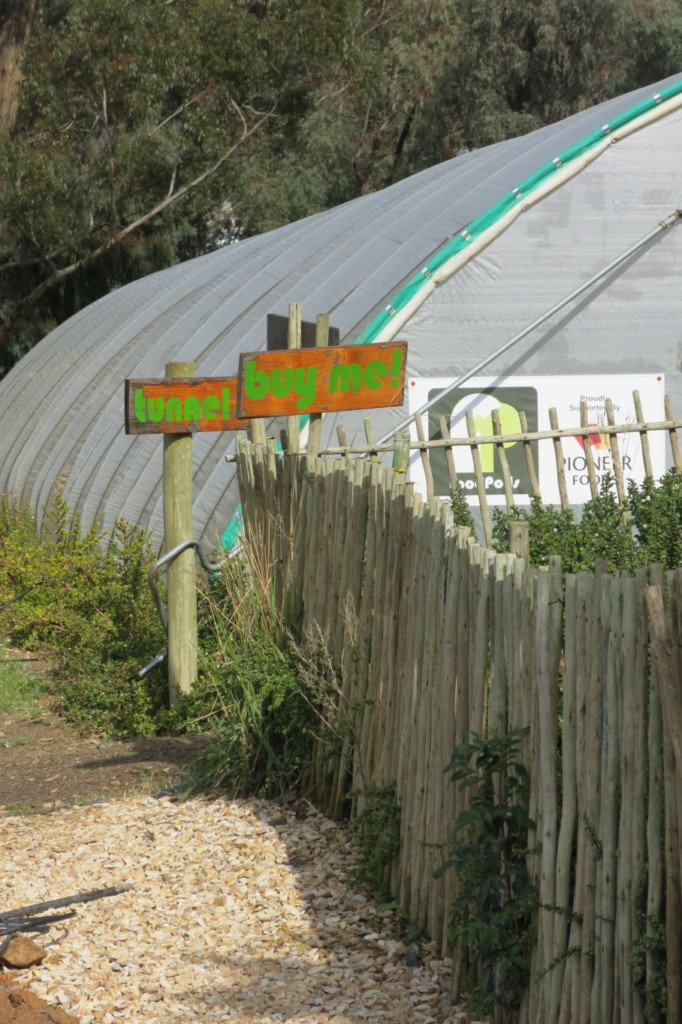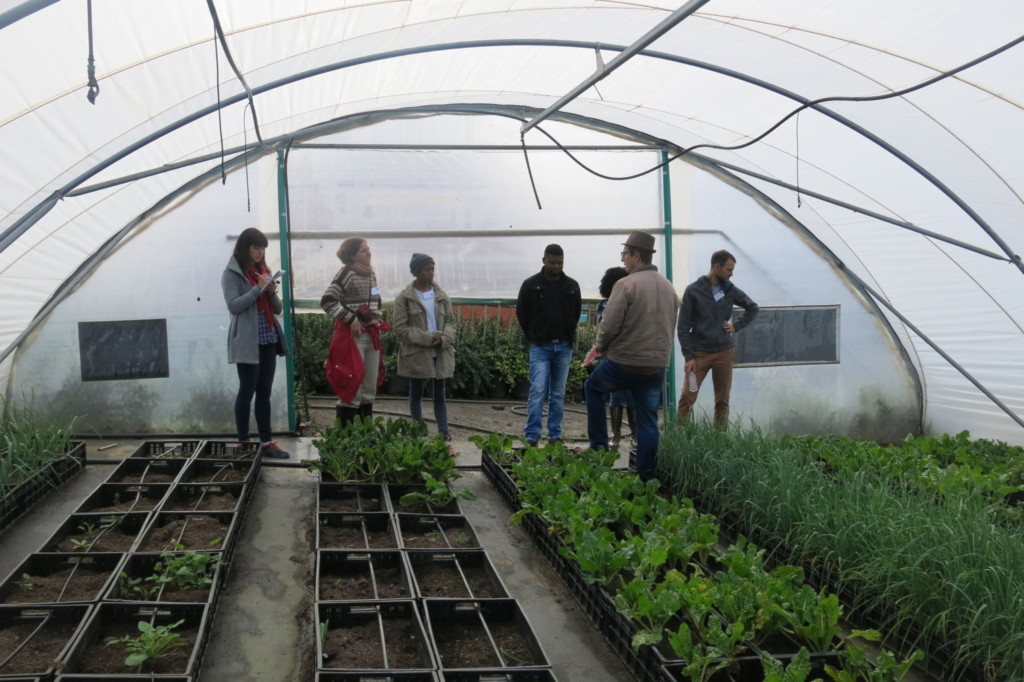
The South African food system is in a state of rapid transition – entangled in multiple crises, yet also rich with innovation, potential and possibility.
With this premise in mind, a diverse group of food system actors, drawn from government, civil society, academia and business, set off to explore some of the different ways that people access food around Stellenbosch, and some of those fresh, emergent spaces where changes are happening.
The learning journey, facilitated by Scott Drimie, director of the Southern African Food Lab, CST researcher Laura Pereira, and PhD student Elsa Vogts, aimed to bring together diverse perspectives through dialogue and experience, in order to begin to think collectively and creatively towards building a food system that is more sustainable.
Participants broke into groups to visit three different sites near Stellenbosch:

— The Simonsrust SPAR, a food retail store serving a wide socio-economic spectrum of clientele, ranging from some of the poorest and most vulnerable to some of the wealthiest residents in Stellenbosch;
— The Kayamandi Food Pods, a social enterprise which equips urban farmers to grow fresh organic vegetables in tunnels and sell this produce locally to help poor and vulnerable people to access affordable, nutritious food;
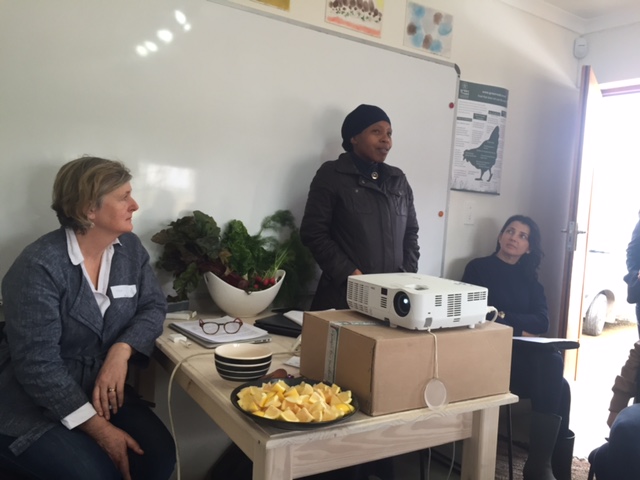
— The Green Road, an online supplier of fresh organic produce, offering practical support to farmers, for example through a participatory, farmer-led certification system, PGS, while connecting them through a short value chain and transparent business model to local customers.
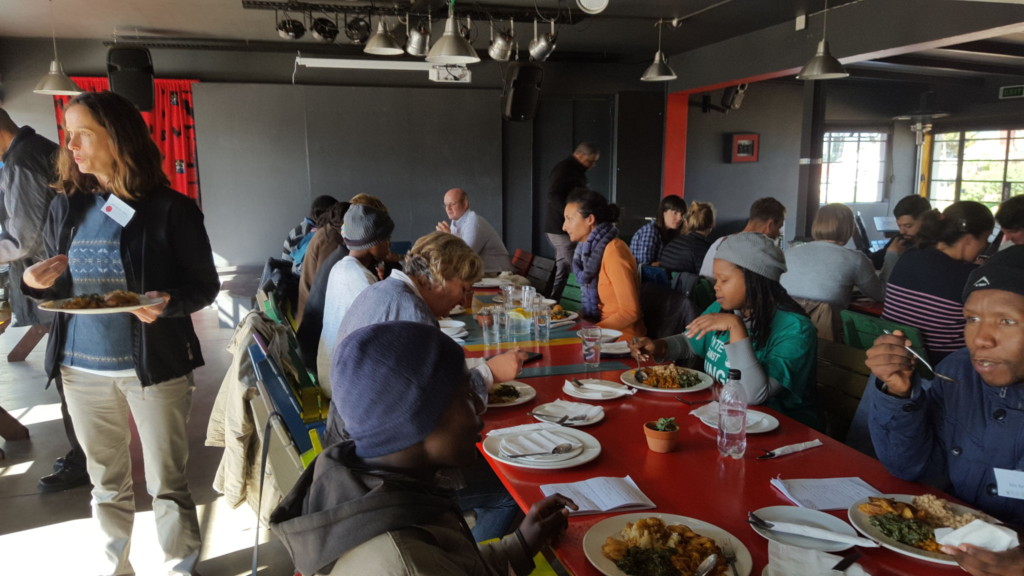
The group then gathered at the Amazink restaurant in Kayamandi for lunch provided by local chef Loyiso ‘Roots’ Mbambo, who then took participants on a walk through the neighborhood, meeting local vendors preparing ‘smileys’, vetkoek and sorghum beer along the way.
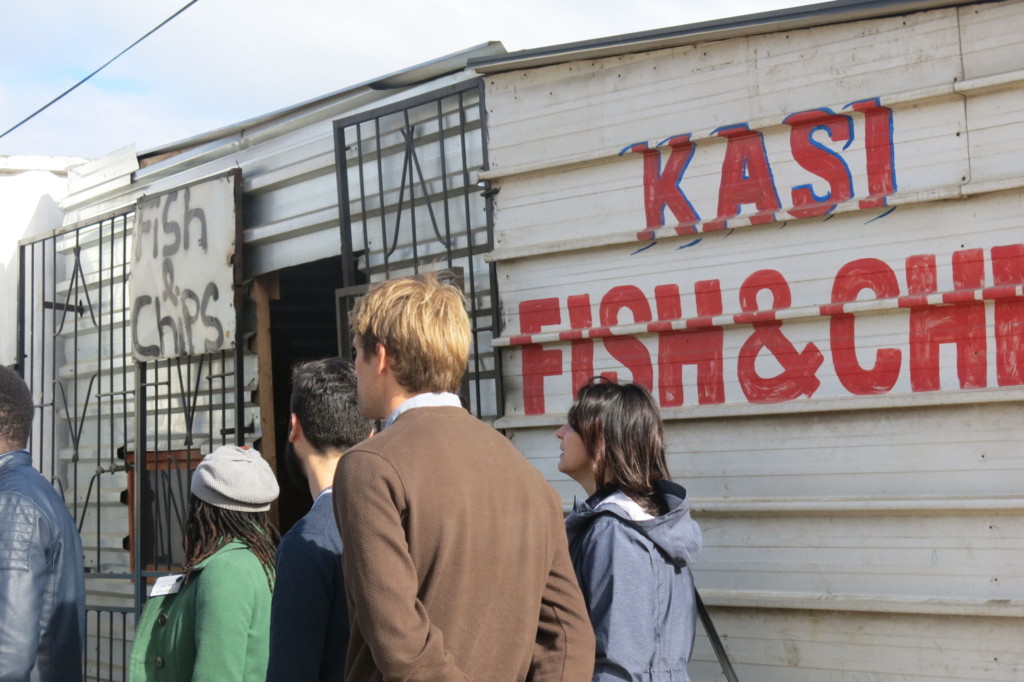
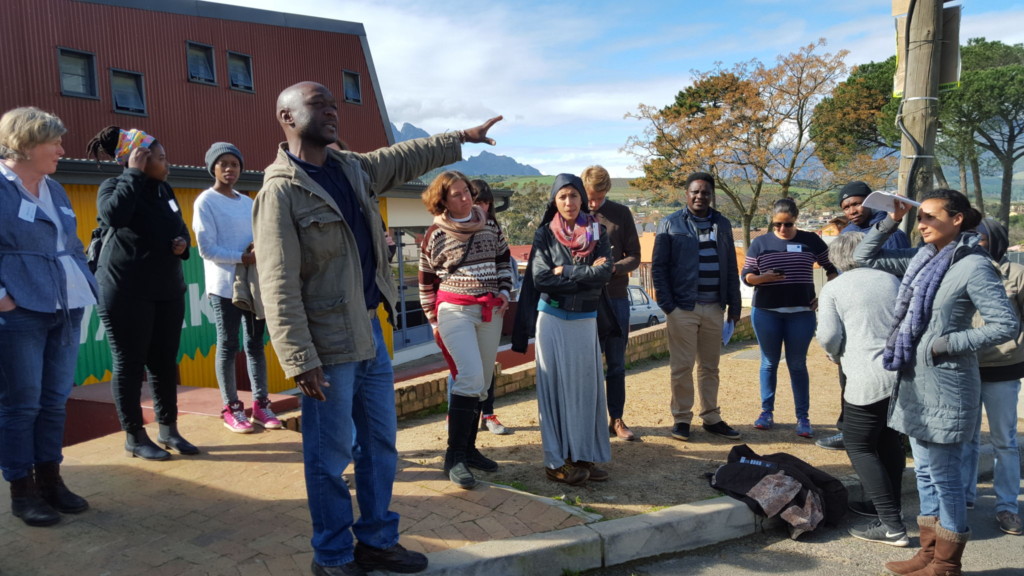
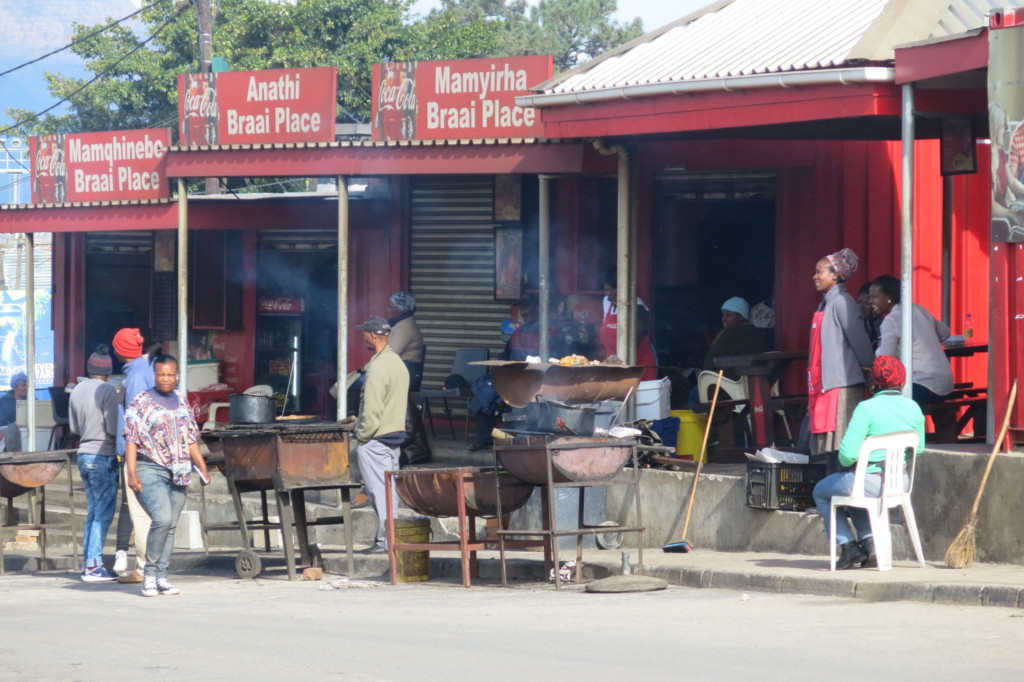
Returning to STIAS, group members circulated in small group conversations aimed at ‘harvesting’ the learnings of the day, drawing on the World Cafe methodology. Faced with such deep and complex food system challenges as entrenched corporate power, for instance, or the fact that 14 million people go to bed hungry every night – the groups sought to focus on the different potentials for positive change that they had encountered during the day, and ways to expand and carry forward these potentials.
Amidst lively debate, group members identified a number of themes to be developed further, including:
— The need for honesty and transparency in the value chain, recognising the risks of honesty;
— More engagement with the private sector, particularly traders, processors, financiers and retailers in the middle of the value chain;
— A greater diversity of ownership, control and models to provide choice in the food system;
— The potential of agroecology;
— The need for a new kind of customer who appreciates the environmental and economic challenges of growing food and is willing to support farmers;
— Food as a creative platform, especially for youth to connect with one another and build alternative livelihoods;
— The need for innovative models to disrupt and shift entrenched power;
— The need for small, incremental experiments;
— A focus on replicating and scaling ideas, rather than scaling up organisations.
The group will participate in follow-up dialogues over the next few months, culminating in a Transformation Lab, or TLab, in November, aiming to bring forward a powerful agenda for transformation in the food system.
Credits:
Written by: Megan Lindow
Photos: Oonsie Biggs, Megan Lindow, Laura Pereira, Loubie Rusch, Elsa Vogts
